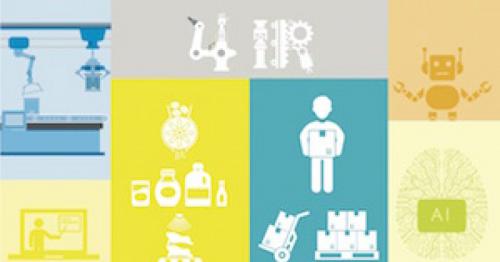https://www.adb.org/news/skills-development-vital-enabling-transition-in...
The finding is one of six key recommendations emerging from ADB’s study Reaping Benefits of Industry 4.0 Through Skills Development in High-Growth Industries in Southeast Asia, covering Cambodia, Indonesia, the Philippines, and Viet Nam.
“The future of jobs is at the heart of development in Asia and the Pacific,” said Director General of ADB’s Sustainable Development and Climate Change Department Woochong Um. “While jobs have been lost to automation in recent years, new jobs will emerge as new and disruptive technologies are adopted. Now is the time to invest in skills development that will help displaced workers acquire the abilities necessary to move into new jobs and help job-seekers access quality jobs for greater prosperity.”
The study assesses two industries in each country deemed important for growth, employment, and 4IR. Based on employer surveys, the study reports large potential returns to businesses arising from productivity increases from 4IR technologies.
By 2030, there is likely to be a positive net impact in all industries analyzed with more jobs created than displaced. Although a third of agro-processing jobs in Viet Nam may be displaced, for example, substantial net job creation of 34% is possible. There could also be net increases of 39% for garments in Cambodia, 14% for food and beverage manufacturing in Indonesia, and 11% for IT-business process outsourcing (BPO) in the Philippines.
“The findings of the study point towards a clear path for the future in Southeast Asia,” said ADB Director General for Southeast Asia Ramesh Subramaniam. “While the region may face challenges in moving the displaced workers into new jobs due to inadequate skills, we are confident that countries will design appropriate policies and invest in workforce skills particularly to accelerate the post-pandemic recovery. We must do everything possible to ensure that no one is left behind.”
Employers in all industries surveyed stressed the importance of skills in the context of disruptive technologies. Together, they could need an additional 169 million people trained by 2030 to prepare for the transition to 4IR.
The study recommends strengthening on-the-job training and skills development for the jobs of tomorrow. It calls for developing industry-led technical and vocational education and training programs with dedicated credentials for 4IR, and flexible and modular skills certification programs that recognize skills attainment outside of traditional education channels.
The study revealed mismatches between training institutions and employers on the perceived readiness of graduates for the workplace. While 96% of training institutions surveyed in Indonesia believed their graduates were well-prepared for work, only 33% of food and beverage manufacturing employers agreed. In Cambodia, almost 90% of surveyed employers reported that graduates were inadequately prepared for entry-level jobs.
The study recommends upgrading training delivery through the application of 4IR curriculum and technology in classrooms and training facilities in close collaboration between industry and training providers to strengthen workforce readiness. The survey of training institutions revealed limited use of advanced technologies such as virtual and augmented reality and online platforms for training delivery.
The study calls for new approaches to strengthen inclusion and social protection for entry-level workers, those at risk of job displacement, and those who need upskilling. According to IT-BPO employers in the Philippines, manual and administrative jobs which are typically held by women are likely to see the largest losses, while females in Cambodia’s garments industry are more likely to be affected.
To ensure the welfare of workers, the study calls for a strong focus on reskilling and upskilling programs, and incentives schemes for employers to retrain workers. The Career-Up Josei-Kin program in Japan, which subsidizes employers to train individuals not on regular contracts is identified as a good example.
While the coronavirus disease pandemic is accelerating digital transformation, the study finds that companies deploying 4IR technologies are likely to recover faster from the disruptions caused by the pandemic and be more resilient in the future.
ADB is committed to achieving a prosperous, inclusive, resilient, and sustainable Asia and the Pacific, while sustaining its efforts to eradicate extreme poverty. Established in 1966, it is owned by 68 members—49 from the region.











Add new comment